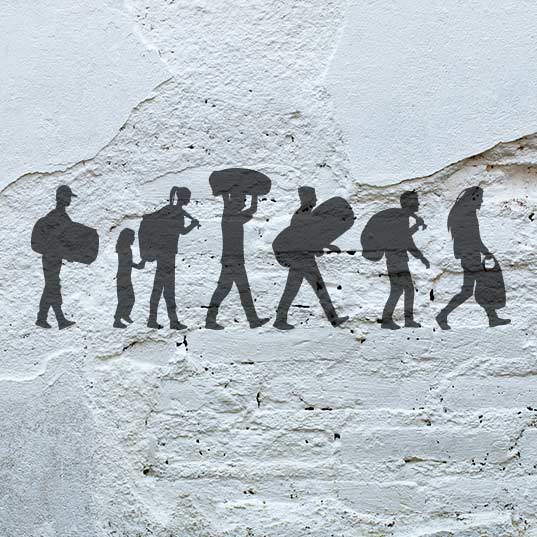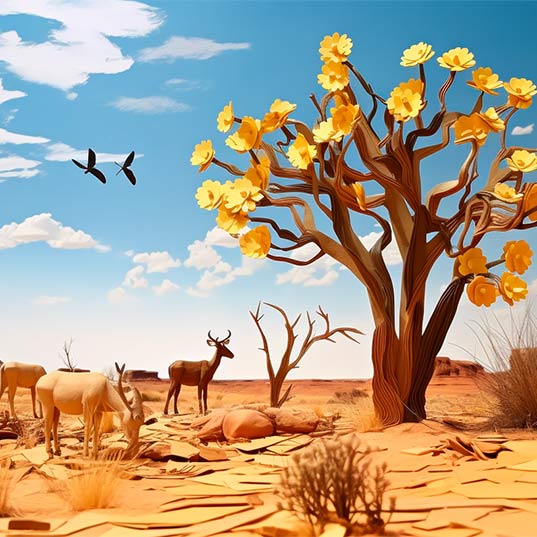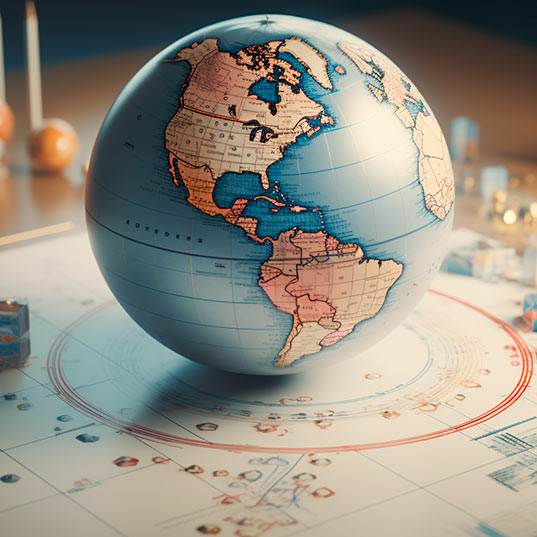The IPCC report on climate change declares that human activity is the main cause of global warming
The IPCC has declared that irreversible climate change has already taken place and that human activity is the main cause of global warming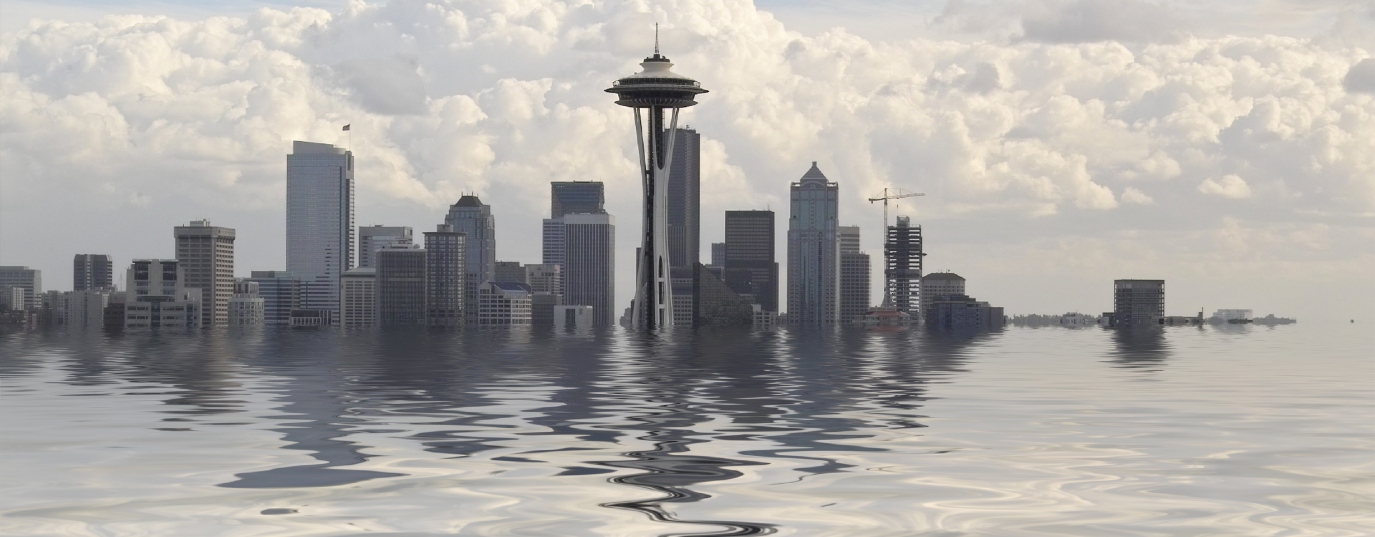
Climate change is affecting us all, and it is doing so in an ever more rapid and intense way. And humans are mostly to blame. These are the main conclusions of the new report by the Intergovernmental Panel on Climate Change (IPCC).
The Sixth Assessment Report, based on the analysis of some 14,000 scientific publications (which you can read here), notes that global warming is already affecting every region of the world. Some of the changes we are seeing are unprecedented (we've broken even more climate records!) and others are already irreversible. Heat waves, fires, floods… Extreme weather events are becoming more frequent and severe.
"The Earth's temperature is already more than one degree higher than it was in the early 20th century (1.1°C), which is having devastating consequences".
However, we still have time to slow some of these effects and even stop others before they become more serious. The experts say that the solution is still an immediate and large-scale reduction of greenhouse gases, especially CO2.
What are you going to find out from this article?
- We are responsible for global warming
- Historical and irreversible changes
- Extreme weather events are on the rise
- Conclusions of the IPCC report on climate change: the time to act is now
We are responsible for global warming
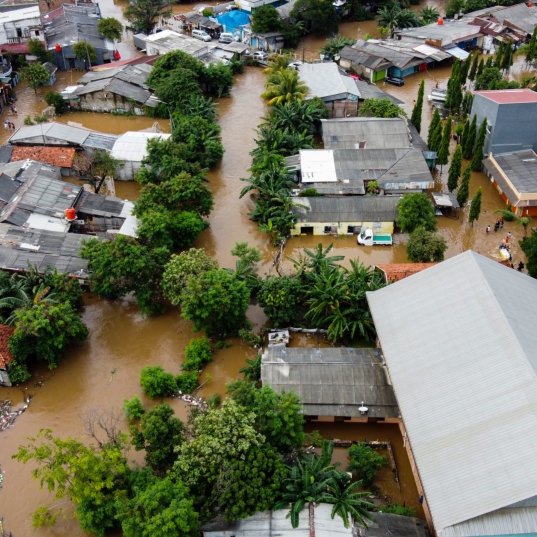 The new IPCC report on climate change is unequivocal: we are responsible for global warming. Humankind is the main driver behind the increase in average temperatures, heat waves, heavy rainfall, droughts and tropical cyclones, as well as the decrease in Arctic sea ice and the reduction of snow cover and permafrost.
The new IPCC report on climate change is unequivocal: we are responsible for global warming. Humankind is the main driver behind the increase in average temperatures, heat waves, heavy rainfall, droughts and tropical cyclones, as well as the decrease in Arctic sea ice and the reduction of snow cover and permafrost.
The evidence is already so overwhelming that there is no scientific doubt. The concentration of greenhouse gases in the atmosphere has led to an increase in global temperature. This increase is due to human activity. We have emitted quantities of CO2 far beyond our (and the planet's) means. In just a few decades we have released millions of years' worth of CO2. If you want to learn more about this topic, you can read this article.
Moreover, for the first time, the IPCC has drawn attention to the role of methane in climate change and declared that this gas—mainly produced in livestock farming—is responsible for around 30 % of global warming since the pre-industrial era.
The most salient fact is that, as a result, the Earth's temperature is already more than one degree higher than it was in the early 20th century (1.1°C), which is having devastating consequences.
"The concentration of greenhouse gases in the atmosphere has led to an increase in global temperature. This increase is due to human activity".
Historical and irreversible climate changes
Time has run out and some effects of global warming are already irreversible. The scenario we are faced with is alarming, so we need to act immediately. The IPCC's report on climate change contains an interactive atlas that shows us how the Earth will look in 2050 if we fail to curb the rise in temperatures.
The fact is that we are facing unprecedented changes that haven't happened in thousands or even millions of years:
- In 2019, atmospheric CO2 concentrations were the highest in at least 2 million years.
- Over the past 50 years, the global surface temperature has increased faster than during any other period within at least the last 2,000 years.
- During the decade from 2011 to 2020, the area covered by Arctic sea ice reached its smallest size since at least 1850.
- Sea level has risen more rapidly since 1900 than in any previous century for at least 3,000 years. In fact, if it continues to rise at the rate seen in recent years, sea level rise could reach 40 centimetres by 2100. And that's being optimistic. The worst-case scenario would see it rise 80 centimetres.
- Since 1960, natural carbon sinks (forests, soil and oceans) have absorbed 56 % of all the CO2 emitted by humans. However, these carbon sinks are losing their ability to absorb carbon as we destroy them.
"Sea level rise could reach 40 centimetres by 2100. And that's being optimistic. The worst-case scenario would see it rise 80 centimetres".
Extreme weather events are on the rise
The devastating floods in China and Germany, the extreme heat wave in Canada and the terrible fires in Turkey are just some of the effects that climate change is having on the planet. And that is all in the last year alone.
Increasingly extreme weather conditions and events are putting our survival at risk: heat waves, torrential rains, droughts, floods, cyclones… If we don't act immediately, just 30 years from now these events that seem so extraordinary today will be ordinary.
Conclusions of the IPCC report on climate change: the time to act is now
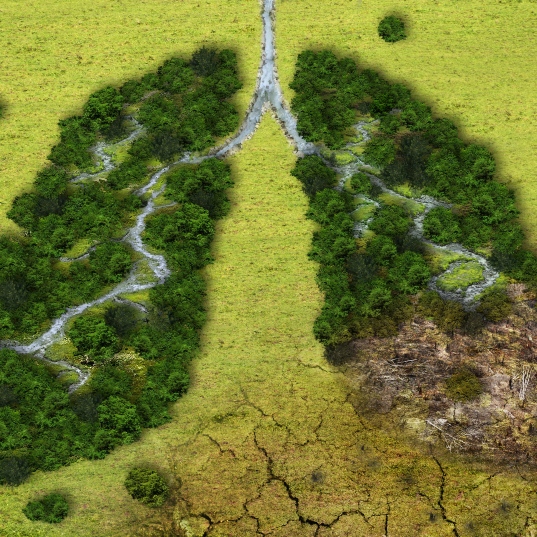 The temperature will continue to rise until at least mid-century. According to IPCC forecasts, global warming will be between 1.5°C and 2°C by mid-century. And that's in the event that we stop emitting CO2 into the atmosphere. If not, the increase will be 4.4°C.
The temperature will continue to rise until at least mid-century. According to IPCC forecasts, global warming will be between 1.5°C and 2°C by mid-century. And that's in the event that we stop emitting CO2 into the atmosphere. If not, the increase will be 4.4°C.
Mitigating climate change requires urgent and ambitious reductions in greenhouse gas emissions. There are several different ways to do that, from reducing energy consumption, improving energy efficiency or transitioning to a renewable energy consumption model to using financial mechanisms that change our production and consumption habits.
"Global warming will be between 1.5°C and 2°C by mid-century. And that's in the event that we stop emitting CO2 into the atmosphere. If not, the increase will be 4.4°C".
The plan to achieve carbon neutrality must involve strategies that entail economic growth linked to the circular economy and that, of course, leave no one behind. Only in this way can we reduce carbon dioxide emissions and adopt a more sustainable model.
The IPCC's Fifth Assessment Report, published in 2014, inspired the roadmap for the 2016 Paris Agreement, the international pact to cut greenhouse gas emissions. Only time will tell whether this latest call to action from experts will save the planet.
Sources:
https://www.ipcc.ch/assessment-report/ar6/



